Faced with layoffs, hiring freezes, and a significant decline in funding within the Southeast Asian tech
ecosystem, there has been a notable shift in compensation trends in Singapore’s tech industry.
In contrast to the preceding two years, during which technology salaries experienced substantial
growth, there is now an overall decrease in salaries for various tech positions, according to Nodeflair’s annual tech salary report. This includes software engineers, who are traditionally among the top earners in the industry.
Despite the overarching salary reductions, one sector stands out: artificial intelligence (AI). As the industry increasingly pivots towards AI technologies, compensation for roles in this domain has witnessed a notable upswing.
In particular, data science roles, including positions such as AI engineers, machine-learning specialists, and deep-learning experts, have seen a noteworthy increase of over 10 per cent in average salaries, marking a growing interest and investment in AI technologies.
The median starting pay for junior data scientists in S$7,500
Based on the salary data derived from NodeFlair’s proprietary database, which includes verified user-submitted pay slips and offer letters, the median pay for a junior data scientist hovers around S$7,500.
Meanwhile, data scientist leads earn up to S$17,000 per month, marking a 27 per cent increase as compared to the previous year.
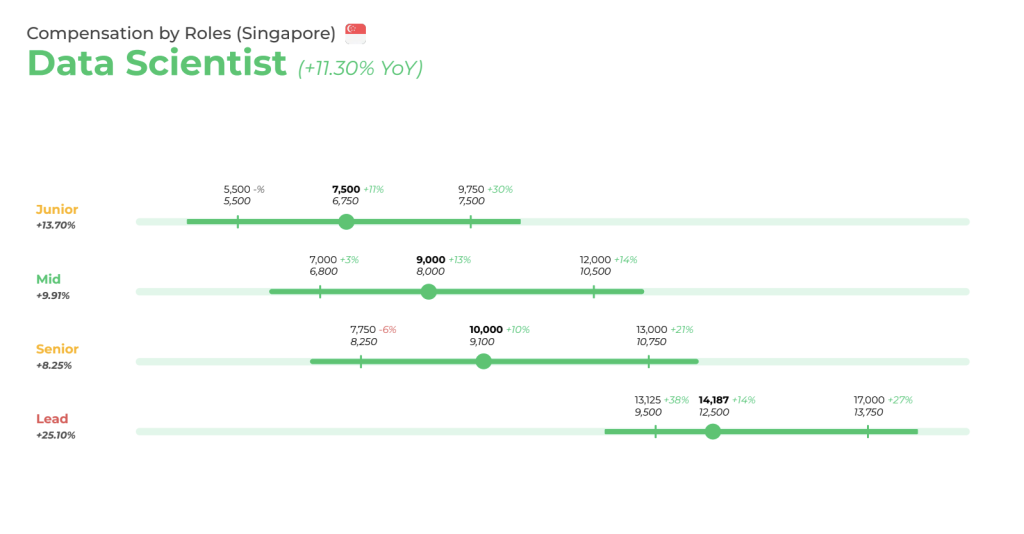
Other tech roles that have seen an uptick in salaries besides data scientists include quality assurance, systems analysts, mobile engineers, and product managers.
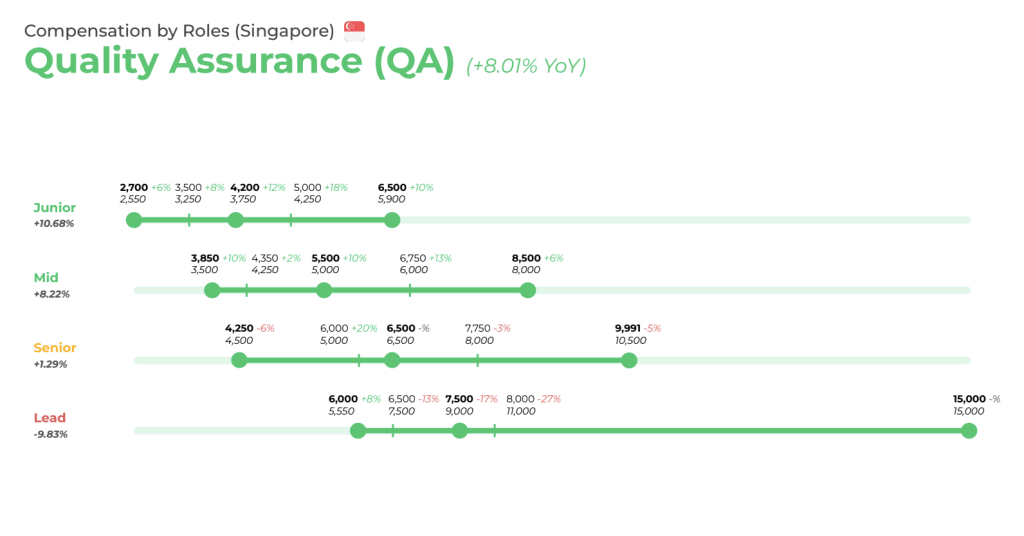
With a 22 per cent year-on-year increase in cyber attacks across Asia Pacific, cybersecurity engineers also see an average salary increase of 8.24 per cent. The median salary of junior cybersecurity engineers is S$4,750, while the 90th percentile of lead cybersecurity engineers makes S$16,000 per month.
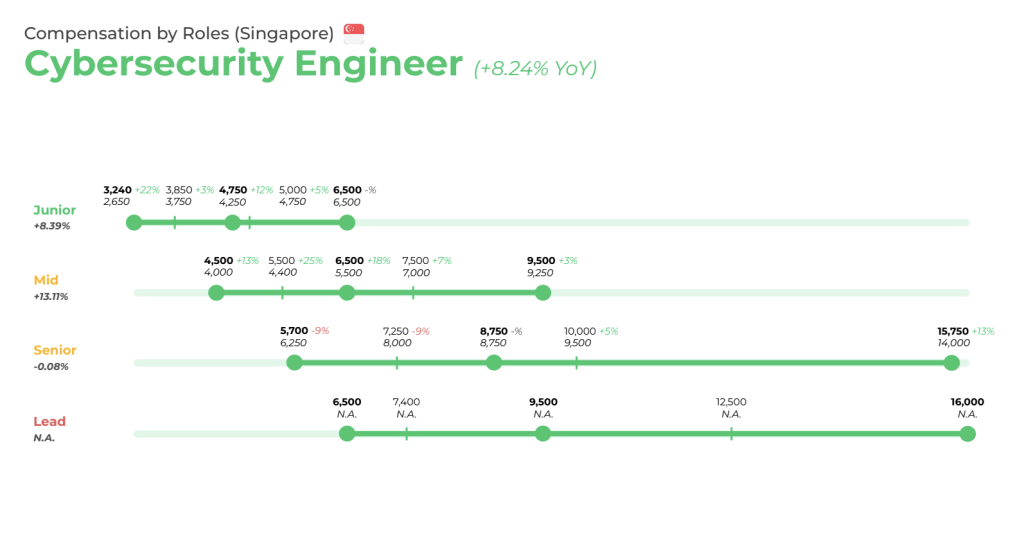
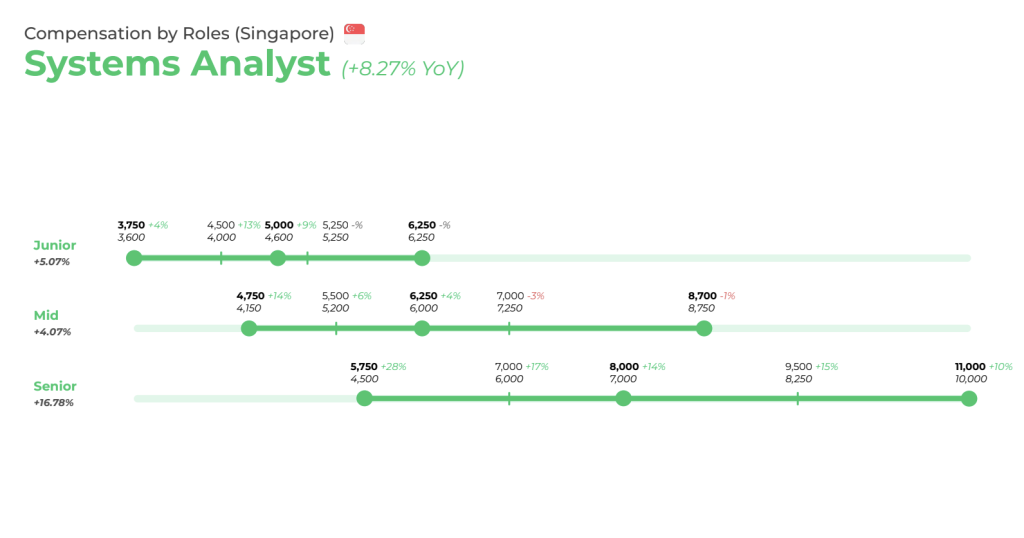
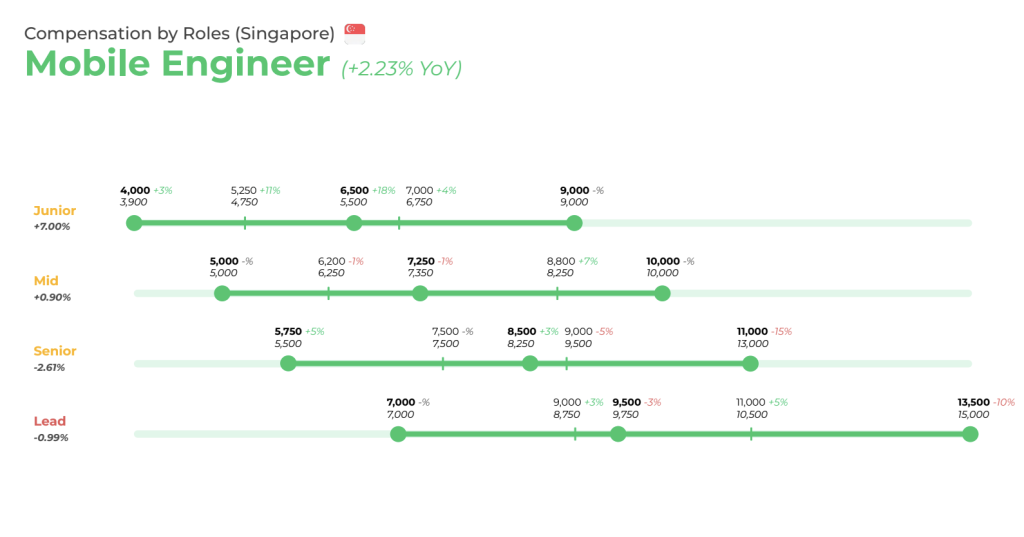
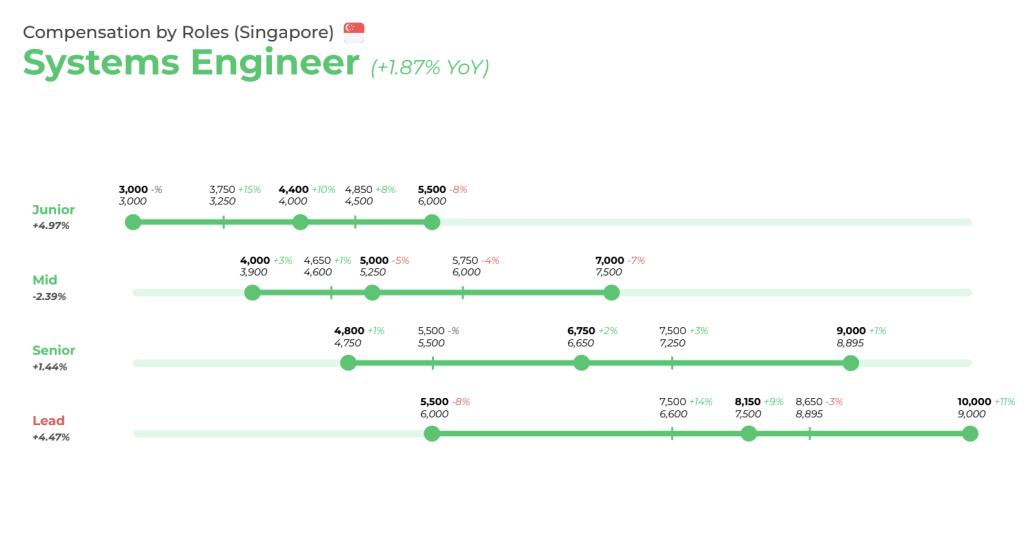
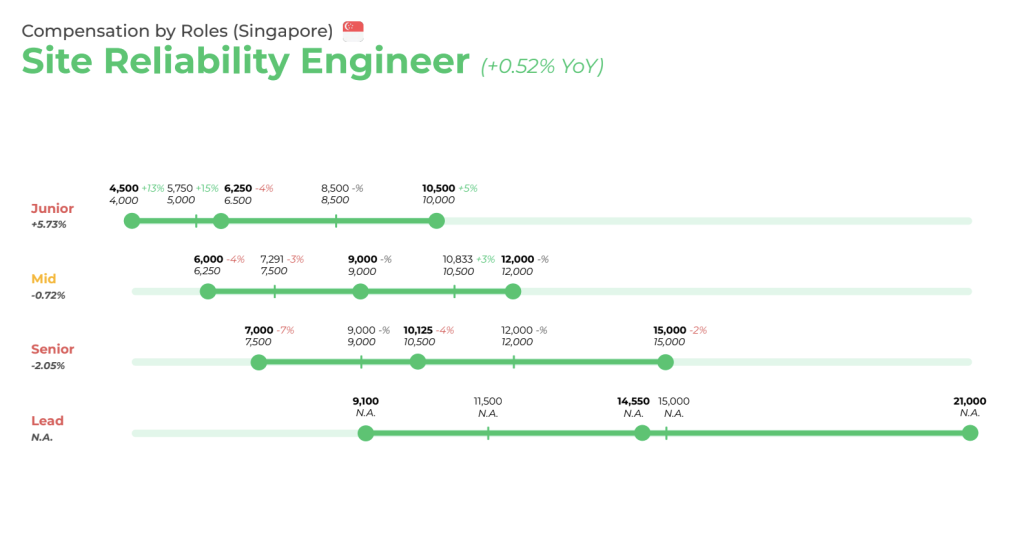
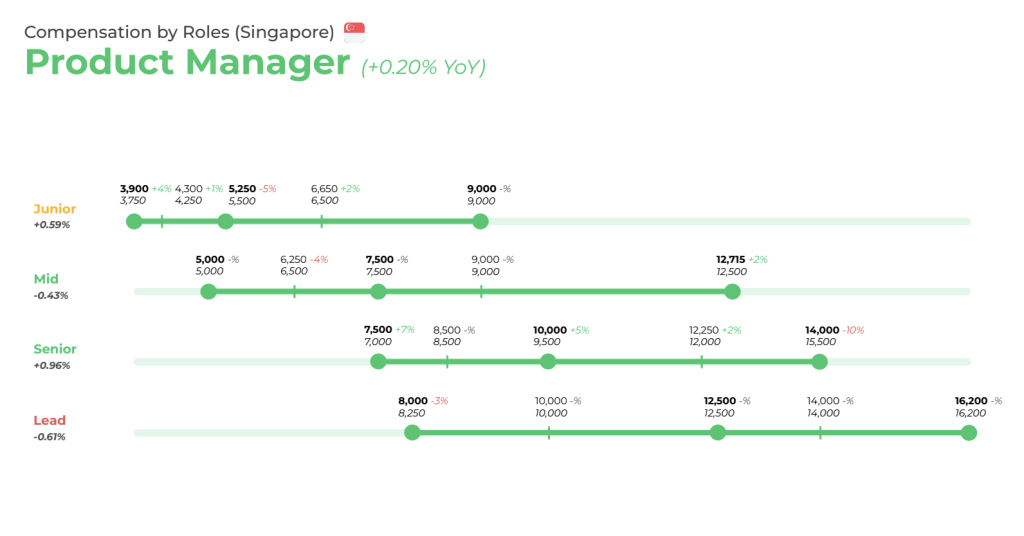
Software engineers still remain the highest-paid tech role
Based on the report, the role that has seen the highest pay cut is game engineers, with their pay dipping by 6.66 per cent in 2023.
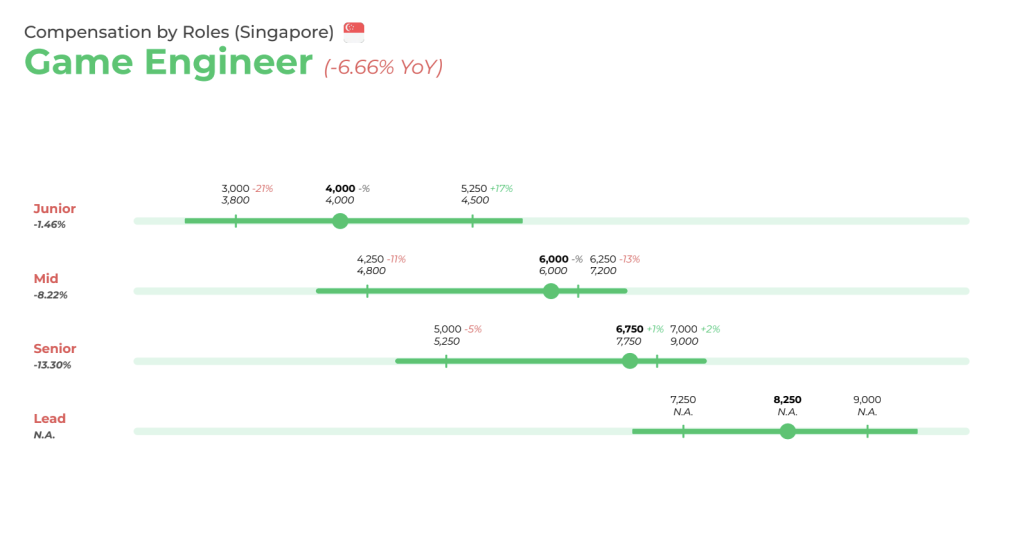
This is followed by solutions engineers, blockchain engineers, DevOps, data engineers, data analysts, and software engineers.
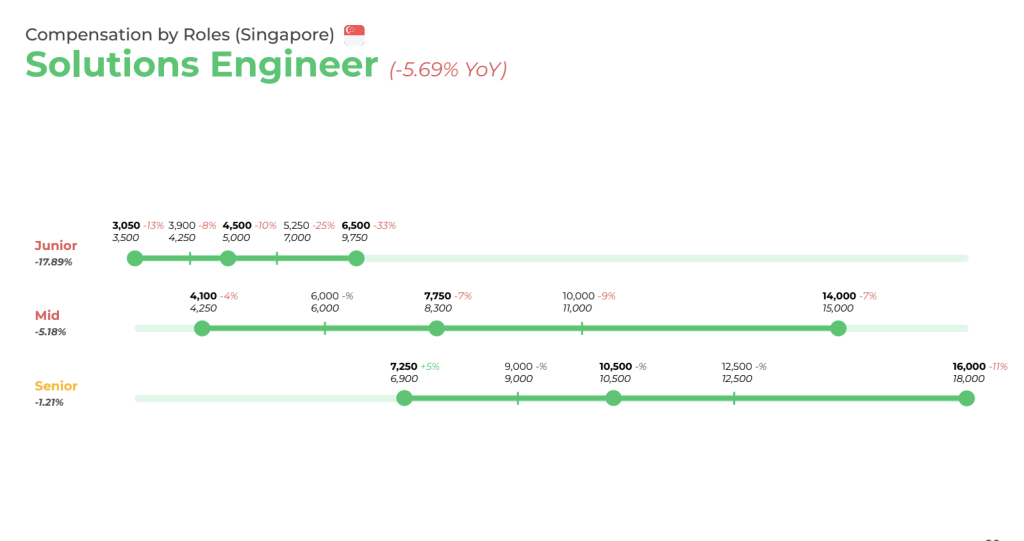
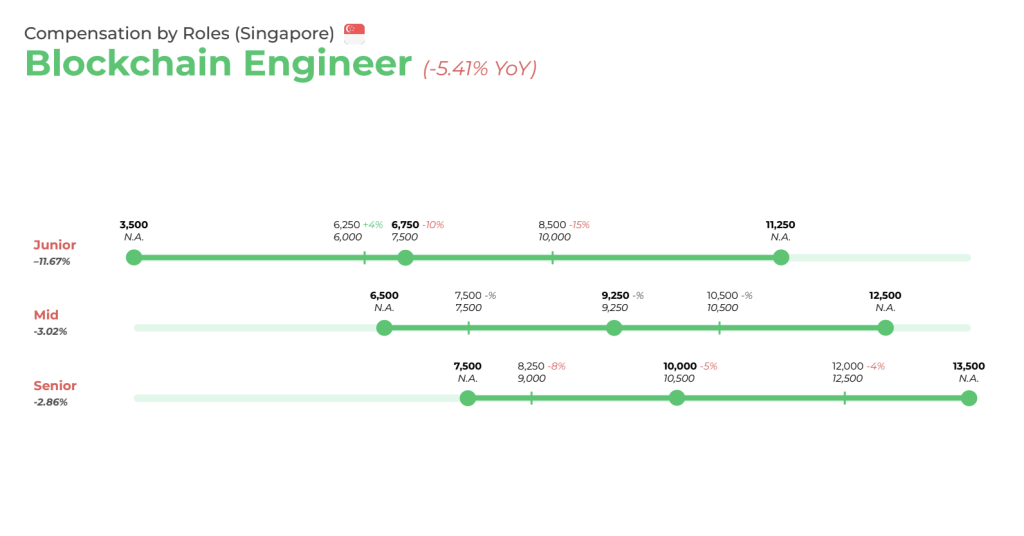
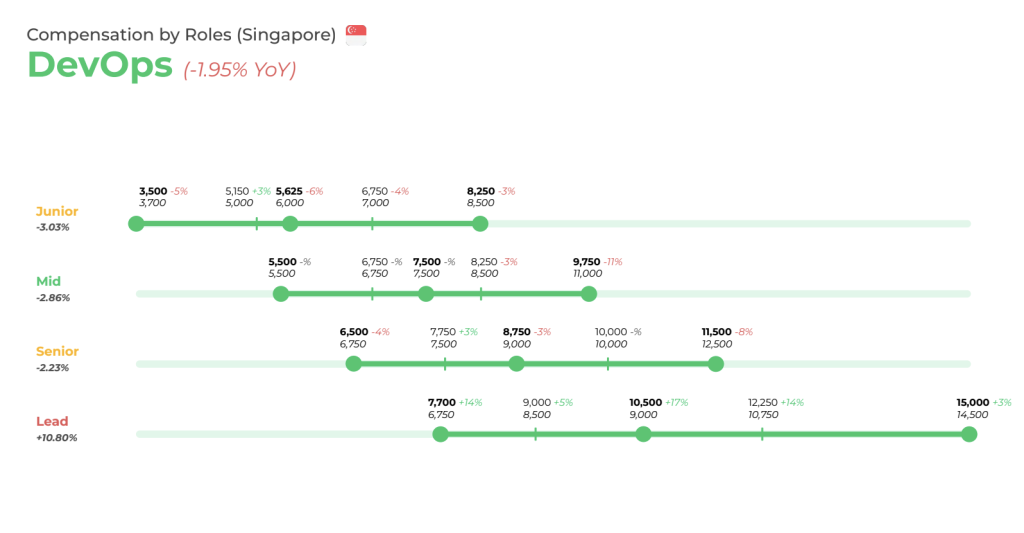
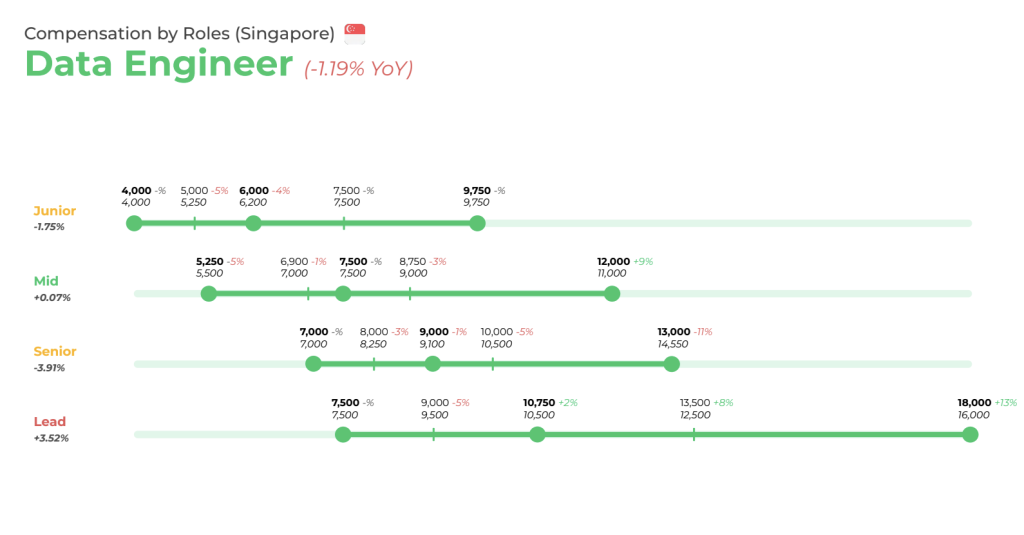
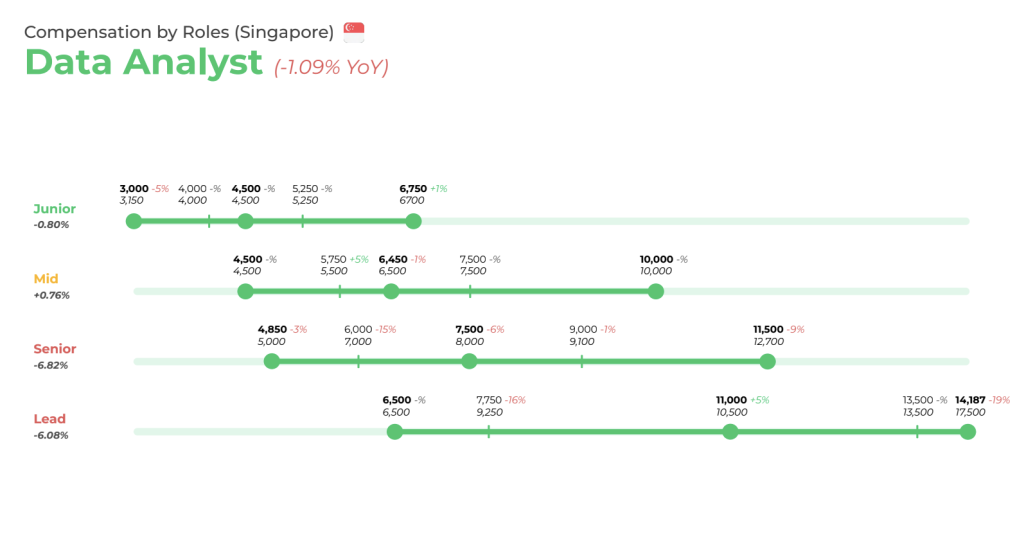
Software engineer salaries decreased by an average of 0.99 per cent in 2023, compared to an increase of 7.61 per cent in 2022. Despite this dip, they remain the highest-paid tech role, with the 90th percentile of software engineer managers earning S$20,500 per month.
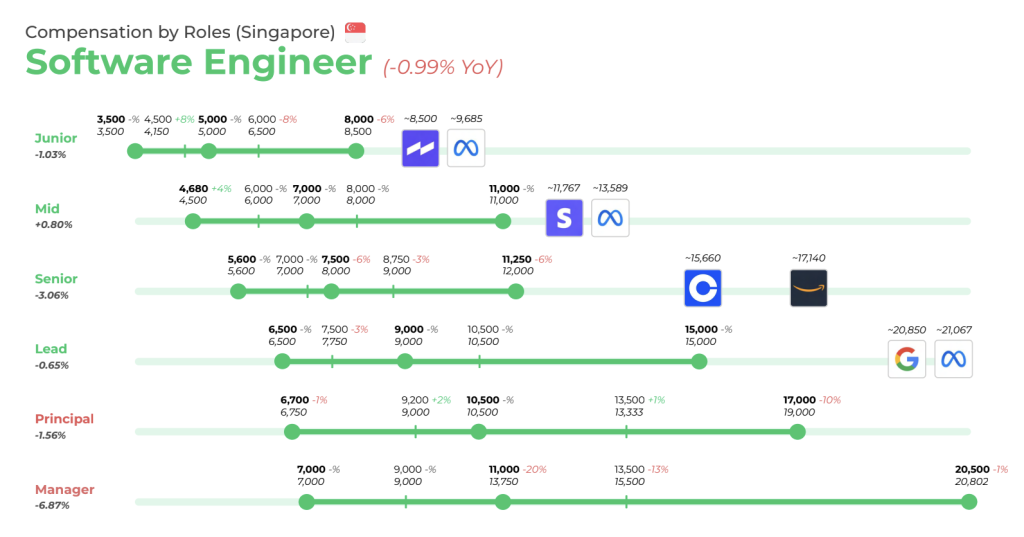
Despite the decrease in salaries this year, they still surpass those observed two years ago. This indicates that the current adjustments reflect a move towards a more balanced and realistic compensation structure.
However, the report also highlights a notable disparity between the industry’s highest and lowest earners, with the former making up to three times more than the latter.
More companies are paying tech talents 20% above market median
Amid the upheavals in the tech industry, job seekers are now prioritising companies that provide stability—workers are now drawn to firms that not only offer competitive salaries but are also financially stable and committed to avoiding layoffs.
Salary has also won over priorities of previous years, including work-life balance and employee benefits.
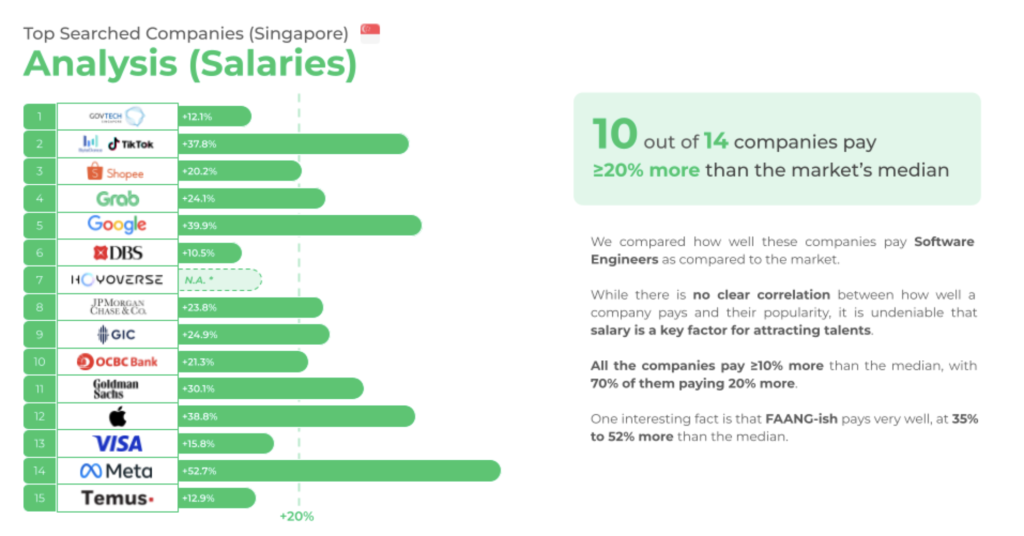
At the same time, an increasing number of companies are paying salaries 20 percent higher than the market median. Among the top 14 most searched tech companies, 10 offer salaries at least 20 percent above the market median, while most others offer salaries 10 percent higher than the median.
This represents a significant departure from the previous year, where only six out of 16 companies paid salaries 20 percent above the market median.
Remote hiring will become more prominent
Looking forward to 2024, the tech hiring landscape is poised for further evolution and innovation, particularly with the ascent of generative AI.
To address talent shortages, Ethan Ang, the CEO of NodeFlair, anticipates a notable surge in cross-border and remote hiring practices within the tech industry.
“As we step into 2024, the tech industry grapples with talent challenges amidst the rise of generative AI and financial prudence,” says Ethan. With flexible hiring strategies, organisations will be empowered to build resilient, globally diverse tech teams, driving unprecedented innovation and success in today’s dynamic landscape.
Next year will also see a notable increase in the use of AI tools in hiring. These tools streamline recruitment workflows for efficiency and unbiased candidate evaluation. Advanced AI systems, particularly in coding assessments, are set to transform interview and assessment procedures, introducing safeguards for the integrity of the hiring process.
Featured Image Credit: Unscrambled










